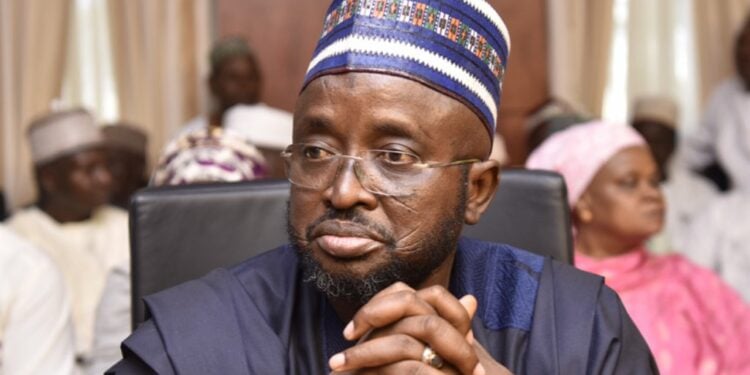Kaduna State Government is making massive investments in the education sector, including digitizing the operations of state-owned tertiary institutions, training teachers and purchasing computers for secondary schools.
The Code for Africa Pilot Program has equipped several secondary schools across the state with the necessary computing equipment and introduced coding as part of the educational curriculum for the senior secondary school students.
The Commissioner of Business, Innovation and Technology, Professor Kabir Mato, said this in his opening remarks at the Business Expo segment of the 7th edition of Kaduna Economic and Investment Summit (KadInvest 7.0).
He recalled that ‘’in 2015, the government established Kadamall, the first homegrown e-commerce platform in the state. In doing this, Kaduna state is exploring the potential of its youthful and digitally connected population, making it poised to become the ICT hub of Northern Nigeria.’’
‘’Similarly, in 2017, the government established the Kaduna ICT Hub, which provides a working environment and adequate support for tech-preneurs and software developers in the state,’’ he added.
Prof Mato pointed out that ‘’the Click-on Kaduna programme was established in 2018, with support from the Rockefeller Foundation and the World Bank to promote innovation, by providing digital skills training and creating a platform for employment.’’
‘’This year, the Tech Village initiative became operational, focusing on artisanal tech skills, by training and equipping residents to assemble smartphones, computers, and other ICT equipment.
‘’Our Singularity programme to prepare young people for the future when Artificial Intelligence surpasses the understanding of mankind is also well underway,’’ he added.
The commissioner also said that Kaduna state ‘’is endowed with significant quantities and varieties of mineral resources, with deposits in all 23 Local Government Areas (LGAs).‘’
‘’As at 2020, there were at least 85 mineral exploration licenses, 40 quarry licenses, 15 mining leases and three small-scale mining leases active within the State.
‘’Some mineral deposits available in commercial quantities within the state include gemstones, gold, tantalite, columbite, manganese, lithium and nickel,’’ he disclosed.
According to Mato, the Kaduna State Development Plan (2021-2025), has a target for the mining sector to contribute 15% to state GDP and 18% to state IGR by 2025.
‘’Critical to achieving these targets are key imperatives to make the sector more competitive by strengthening Ease of Doing Business reforms, improving the regulatory climate, strengthening intergovernmental collaborations, formalizing and structuring artisanal/small-scale miners, and improving “bankable” geoscientific exploration data accessibility, amongst others,’’ he added.



